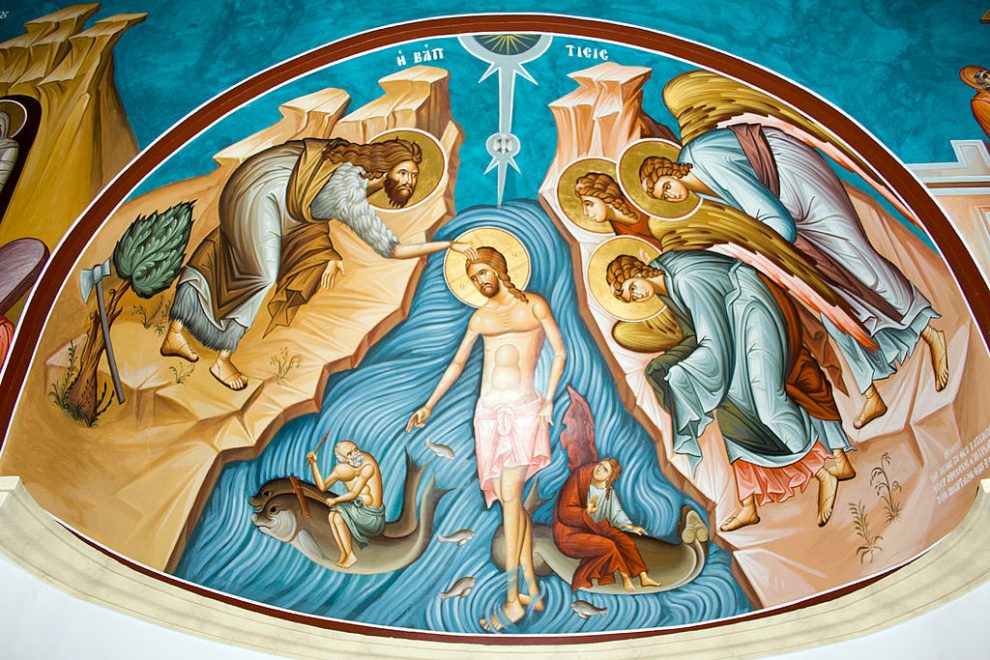Twenty years ago, director M. Night Shyamalan’s movie The Sixth Sense changed how viewers experienced the power of perspective. If someone stopped watching before the climactic “reveal,” they perhaps could have offered a reasonably coherent plot summary. But as soon as they reached the ending, everything they thought the movie was about had to be reevaluated, and their reasonably coherent plot summary would not have worked at all.
A similar change in perspective is needed when considering Jesus’ baptism. Today, baptism means something particular to many Christians: The ritual is an outward sign of the welcoming of people into the church and of God’s forgiveness of sins. The Catechism of the Catholic Church states that “through baptism we are freed from sin and reborn as sons of God.” But in presuming that because this is what baptism is, this is also what baptism has always meant, we make a Sixth Sense-ish error. Our present view glosses over the past: In fact, when John baptized Jesus, it meant something different.
The Greek word baptizo means “to plunge,” “to drown,” or “to sink.” In first-century Palestine, John’s baptism of Jesus was one of many water rituals that included the daily ritual bathing of monks at Qumran, Jewish ceremonial washing (John 2:6), and the Pharisees’ ritual handwashing (Mark 7:3–5).
Josephus, the first-century Jewish historian, notes that John the Baptist baptized individuals to mark the ritual completion of their journey toward conversion. Rather than creating purity by forgiving sin, John’s baptisms commemorated the purity achieved when individuals turned away from sin in anticipation of the coming of God’s reign.
This may be why John baptized in the Jordan: Maxwell Johnson, in The Rites of Christian Initiation (Liturgical Press), describes how Israel first crossed the Jordan to enter the Promised Land. Now John demands that the people wade into the Jordan again to anticipate the promised age.
In this light, Jesus’ baptism makes sense. It is the moment where the heavens open, the Spirit descends, and the voice of the Father names the Son. It is the moment that precedes the temptation: Will Jesus rest on his privileged relationship, or will he set out to proclaim—in words, actions, death, and resurrection—the in-breaking of God’s kingdom.
The resurrection is the foundational Sixth Sense moment that compels the disciples (not just those on the road to Emmaus) to reevaluate everything they thought they knew about Jesus and his ministry. They could better understand how his baptism was more than a moment; it began his way of life and death.
Thus, rather than our baptism shaping our understanding of what Jesus’ meant, it must be his that defines ours. Again and again, the heavens open, the Spirit descends, and children of God are named. Again and again, temptations emerge, causing us a crisis of faith. Are we content to rest on the relationship inaugurated by the moment of our baptism? Or are we willing to live out that baptismal identity in our words, our actions, and in our death in the hope of resurrection?
This article also appears in the January 2019 issue of U.S. Catholic (Vol. 84, No. 1, page 49).
Image: via Wikimedia Commons













Add comment